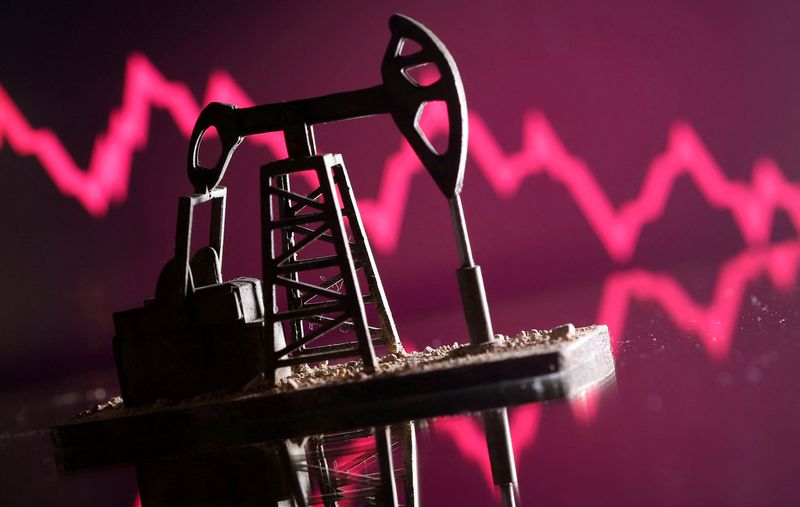By Ron Bousso and Sabrina Valle
(Reuters) -Oil-and-gas leaders advocated at an industry conference on Monday for a combination of more fossil fuel production and renewable energy sources to reduce reliance on places like Russia as oil prices soared following that nation's invasion of Ukraine.
The CERAWeek energy conference opened in Houston on a day when global crude prices reached levels not seen since the 2008 financial crisis. Buyers are shunning Russian exports of crude and fuel, creating what could be the biggest disruption in global energy supply in decades. Russia exports 4 to 5 million barrels of crude and 2 to 3 million barrels of products daily. [O/R]
"This is about how we survive this crisis. There is no capacity in the world in the moment that can replace 7 million barrels of exports," said OPEC Secretary General Mohammad Barkindo.
The CERAWeek conference was originally expected to focus on energy transition technologies and a greater role for renewables. Instead, many participants have focused on energy security and reliability, as many countries, particularly Europe, rely heavily on Russia for fuel.
The Portuguese government was discussing "how we can accelerate renewables in Portugal," said Andy Brown, CEO of Portuguese energy company Galp. "Even before the Russia situation emerged, the market was distressed. Take Russia (energy) out of the equation, then it becomes a crisis."
At a news conference, Barkindo reiterated the need for further investment in oil-and-gas. He and others said lack of investment in previous years had in part led to the market's tightness. Global benchmark Brent crude briefly surpassed $139 on Monday - not far from its all-time high of $147.50. It closed Monday above $123.
"What is happening today in Europe is a big wake-up call to a lot of policymakers if they are serious about security of supply, affordability and of course climate change compatibility," TotalEnergies CEO Patrick Pouyanne told the CERAWeek conference in Houston.
TotalEnergies is one of the few oil majors that has not divested from Russia, though Pouyanne said the company is not investing additional capital in the country.
Several speakers addressed Russia's invasion, beginning with U.S. climate envoy John Kerry, who called Russia's actions "abhorrent."
"This is a defining moment for this century," Kerry said. He said people must now live with higher energy costs for a time, and that the Biden Administration supports an all-of-the-above energy policy that includes natural gas and nuclear power.
Advocates of renewables say the invasion makes the transition to cleaner fuels more desirable, and that additional fossil-fuel investment now will only increase the world's dependence on oil and gas at a time when the climate continues to warm.
Analysts believe high prices could persist for months, as the United States and the European Union are considering an outright ban on buying energy from Russia. Sources said Washington was considering going ahead alone, a step the White House had previously resisted.
European countries account for roughly half of Russia's crude exports, according to the U.S. Energy Information Administration.
"We have to talk about diversification, we need more renewable energy in the basket...to have less energy dependence in Europe," said Josu Jon Imaz, chief executive of Spain's Repsol (MC:REP).
Saudi Arabia, leader of the Organization of the Petroleum Exporting Countries, and Russia are part of a group known as OPEC+ that has been boosting supply by 400,000 bpd every month to restore pandemic-related output cuts dating back to 2020.

The United States and others have called for still greater increases from OPEC+, but producers are consistently falling short of targeted increases. On Monday, OPEC+ sources said the oil market's fundamentals remained sound, downplaying the prospect of any further extra supply.
After cutting spending and production during the depths of the COVID-19 pandemic, the industry has been in no shape to match the growth in consumption: The United States is still producing more than a million barrels below its 2019 peak of 13 million bpd.
